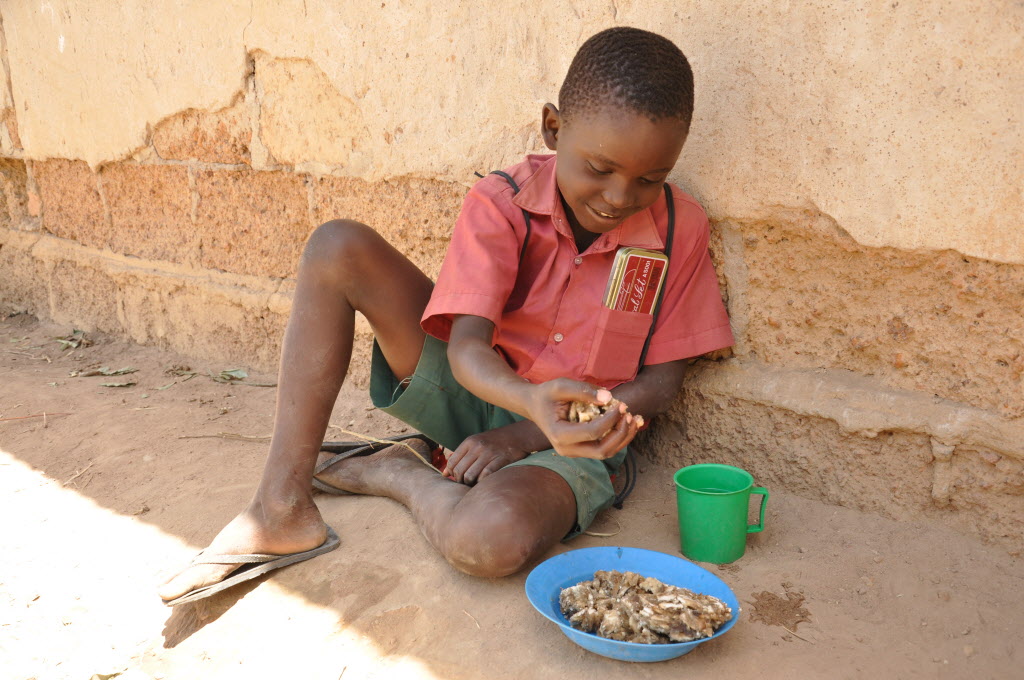
WASHINGTON, DC (March 26, 2015) — Today a coalition of 33 humanitarian organizations and advocacy groups launched a policy brief outlining a comprehensive approach to solving global hunger and malnutrition. Through the brief, the Roadmap Coalition encourages the Administration and Congress to continue building on what they have achieved. With strong legislation, effective programs and adequate funding, there is hope for the elimination of hunger around the world.
“Building on the history of strong bipartisan support in this area, Congress is constructing the right food and nutrition security programs and the right legislation to enable us to improve the lives of millions,” said David Beckmann, president of Bread for the World and the Alliance to End Hunger.
First developed in 2009 in the wake of a global food crisis when there were 925 million hungry people, the Roadmap to End Global Hunger presented a comprehensive U.S. strategy to increase food and nutrition security over five years. While today there are 120 million fewer hungry people, there is still work to be done to reach the remaining 805 million hungry people, many of whom are burdened by natural disaster and conflict.
The Roadmap Policy Brief calls for a multi-pronged approach to solving hunger and malnutrition that stands on four pillars – emergency response, safety nets, nutrition and agriculture. Emphasized in the Brief is the cross-cutting nature of the pillars and smart programming that is gender-sensitive and weaves in natural resource management.
The Roadmap Policy Brief will officially be launched at the International Food Policy Research Institute on April 23. You can also view the full policy brief here.
-END-
The Roadmap to End Global Hunger 2015 Policy Brief, guided by the mission to reduce global poverty and hunger through effective policies and international programs, was signed by 33 organizations:
1,000 Days, Action Against Hunger, Alliance to End Hunger, American Jewish World Service, Bread for the World, CARE USA, Catholic Relief Services, Chicago Council, Church World Service, Concern Worldwide U.S., Congressional Hunger Center, Counterpart International, Evangelical Lutheran Church in America, Fabretto Children’s Foundation, Farm Journal Foundation, Global Volunteers, GrainPro Inc., Helen Keller International, Hunger Solutions Institute at Auburn University, InterAction, Islamic Relief USA, Joint Council on International Children’s Services, Mercy Corps, NCBA CLUSA, Outreach, Inc., Oxfam America, Save the Children, Stop Hunger Now, The Borgen Project, The Hunger Project, Women Thrive Worldwide, World Food Program USA, and World Vision
About World Vision:
World Vision is a Christian humanitarian organization conducting relief, development, and advocacy activities in its work with children, families, and their communities in nearly 100 countries to help them reach their full potential by tackling the causes of poverty and injustice. World Vision serves all people regardless of religion, race, ethnicity, or gender. For more information, please visit www.WorldVision.org/media-center/ or on Twitter @WorldVisionUSA.
Highlights
- New policy brief outlines comprehensive strategy to solve global hunger
- Coalition of 33 aid organizations came together to support efforts to aid the world’s hungry
- Brief recommends multi-pronged approach including emergency response, safety nets, nutrition and agriculture